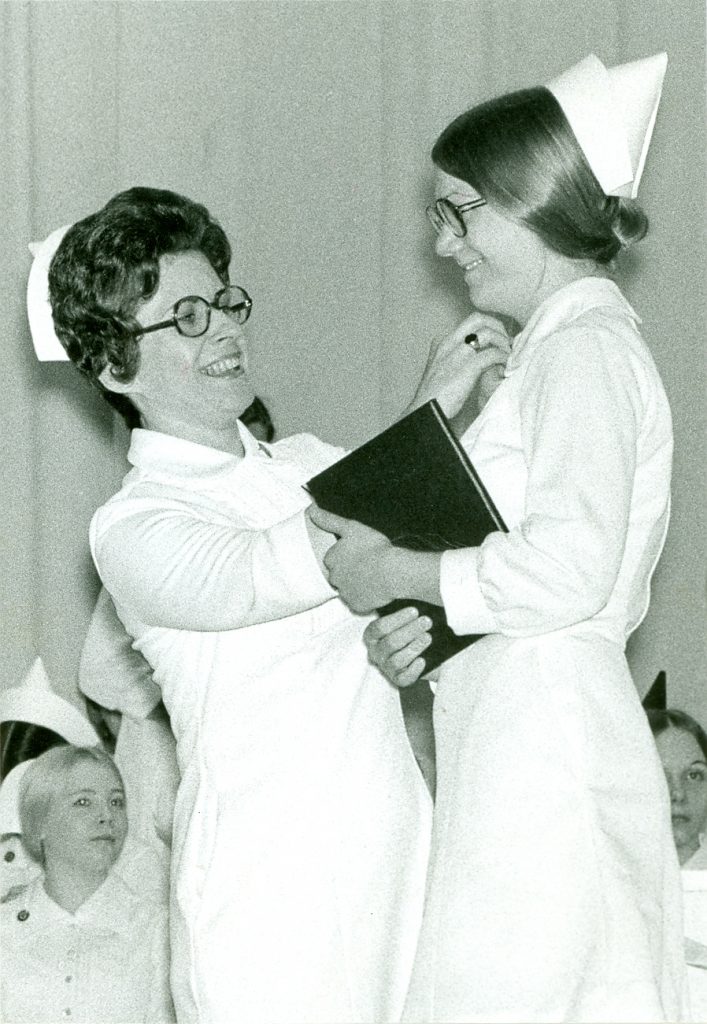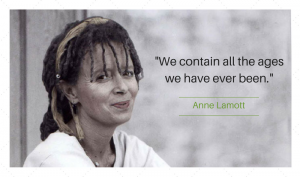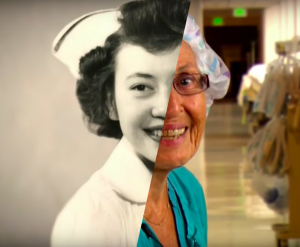A perfect storm is coming for nurses. Just when the number of senior citizens who need complex medical care is set to rise sharply, no fewer than one million nurses are leaving the profession. The reason for both things is the same: the baby boomer generation.

Luckily, nurses have been increasingly likely to keep working until an older age. This trend has helped, for now, to mitigate the nursing shortage.
Thanks to aging nurses delaying their retirement by an average of 2.5 years, Health Affairs research showed a few years ago, there were at one point 136,000 more Registered Nurses than there would have been otherwise. It may even have made it more difficult for newly graduating nurses to find jobs than they expected.
But that luck is set to run out. Some 60,000 RNs have exited the workforce each year since 2012, the same researchers calculated for Health Affairs last year. By the end of the decade more than 70,000 RNs will be retiring annually.
It’s all hands on deck, so what can employers do to help and encourage experienced nurses who might be willing to stay on the job?
“The departure of such a large cohort of experienced RNs from the workforce means … a significant loss of nursing knowledge and expertise that will be felt for many years to come,” Peter Buerhaus, David Auerbach and Douglas Staiger wrote. “As the retirement of RNs ramps up, a different type of nursing shortage will emerge—one of knowledge, skill, experience, and judgment”.
It’s all hands on deck, so what can employers do to help and encourage experienced nurses who might be willing to stay on the job?
We find out in this two-part blog post. Today, in part one: why are experienced nurses so valuable for an organization? Why is keeping them on board so important?
- See also part 2: Older nurses have helped stem the nursing shortage. But that means the workplace needs to change
- And our previous post: The future face of nursing? This nurse is very experienced indeed
Good news for employers
For employers, the trend of nurses delaying their retirement has meant they could keep relying on tried-and-tested nurses. The Pew Charitable Trusts reported that nursing jobs sometimes stay open for a long time even as newly graduated nurses “struggle to land their first job,” because employers prefer nurses who are “‘prepared’ to start right away”. After all, new grads often still need on-the-job training and mentoring that older nurses no longer require.
“Experienced RNs are likely to be more adept at identifying complications and unexpected changes in patient conditions sooner and respond appropriately. They are also more likely to know how to manipulate the organization’s culture to “get things done,” [and] serve as role models and mentors.”
The American Hospital Association summed up the advantages in a report by its Long-Range Policy Committee. “Retaining staff who are approaching retirement is a cost-effective strategy,” it concluded. The employer retains the knowledge and skills of the nurse who’s staying on, who is also already familiar with how the organization works, and saves expenses on “orientation, training, and supervision”.
Buerhaus and colleagues highlighted all the ways employers and patients benefit: “Experienced RNs are likely to be more adept at identifying complications and unexpected changes in patient conditions sooner and respond appropriately. They are also more likely to know how to manipulate the organization’s culture to “get things done,” [and] serve as role models and mentors.”
 It actually helps that many of the older nurses choose to work outside hospitals. 85% of Registered Nurses under thirty work in hospitals, but just 35% of 65-years old nurses do. Instead, over half of them work in “nursing homes, academic education, home health care, or community health settings such as schools, and ambulatory care”, David Auerbach and his co-authors in Health Affairs observed.
It actually helps that many of the older nurses choose to work outside hospitals. 85% of Registered Nurses under thirty work in hospitals, but just 35% of 65-years old nurses do. Instead, over half of them work in “nursing homes, academic education, home health care, or community health settings such as schools, and ambulatory care”, David Auerbach and his co-authors in Health Affairs observed.
That makes sense, considering how physically demanding the work in acute care is. But it’s also useful, as most of the net increase in the demand for RNs in the years to come is expected to come from outside the hospital sector.
Proud and passionate
There are real benefits for colleagues and patients too. Older nurses bring “subject specific expertise as well as instructional, cultural, and historical perspectives that are valued in the workplace,” the authors of a study on aging nurse practitioners argued. “The retention of older nurses is extremely important” in the healthcare industry, researchers conducting an international literature review insisted.
Nurses who keep working often do so out of a passion for the profession. When we asked on Facebook what keeps them going, one nurse said it was a commitment to the “vows I made years back that I wanted to be a nurse”. She stays “over night to look after the sick,” because “I never stop until I accomplish that which I am meant to!”
That kind of commitment makes them beloved and respected, and some keep going for a very long time indeed. In an earlier post we introduced Kay Hodges, the oldest nurse of New Jersey, who was 97 years old and the Public Health Nurse of the borough of Emerson. “She’s amazing, just amazing,” nursing in-service instructor Edith Collazzi told NorthJersey.com. “She knows everybody and makes it a point to speak with everybody. She sends cards, she sends stuffed animals to people when they’re sick. She’s such a positive force.”
As extreme as her case sounds, she’s not even the only nurse in her 90s! Florence Rigney has been working as a nurse for more than 70 years, and now works at the very same hospital in Tacoma, Washington, where she went to school in 1946. When she turned 67, she retired, but after just six months she returned to the job — and that was 25 years ago.
She’s been in hospitals as long as penicillin, NBC News pointed out, but she says she just loves what she does. “I love nursing, I just wish I could do more,” she explained, giving patients “what comfort and what help I can,” before adding that “I just feel very honored that they’ll still let me work”. She is still “as sharp as a tack and keeps up with people who are one-quarter of her age,” director of surgical services Paula Swanson marveled.
Are employers prepared?
Obviously no employer should expect any employee to keep working into their seventies, let alone their nineties. But they do face a real problem.
Between 2001 and 2015, the share of full-time RNs over 50 went from one-in-four to more than one-third. When they retire, “their accumulated years of nursing experience leave with them,” Buerhaus and his colleagues warned. The “large numbers of nurses nearing retirement age raise concerns about the availability of nurses with sufficient knowledge and clinical expertise,” Jennan Phillips and Rebecca Miltner cautioned in the Journal of Nursing Management.
This doesn’t just harm patients and fellow nurses. There’s a business case for investing in older nurses too. “The replacement of experienced nurses is costly to the individual organization and to the health care industry as a whole,” the authors of Wisdom at Work: The Importance of the Older and Experienced Nurse in the Workplace warned. Turnover costs in nursing amount to literally billions of dollars.
That means, most of all, focusing on job satisfaction, because that’s the number one factor “associated with intent to retire” that can be actively addressed. It means providing flexible career options. It means restructuring work floor tasks and schedules. And it means some practical adjustments as well.

When experienced nurses nearing retirement decide to keep working even a few years more, that already helps manage these looming threats. But are employers up to the challenge?
Few of them “have proactively addressed” the issues they need to tackle to make it feasible for older nurses to stay on, Phillips and Miltner wrote. The authors of the nurse practitioners study warned about this as well: if employers want to enjoy the benefits of more experienced nurses, they have to figure out better ways to retain them in the workforce.
That means, most of all, focusing on job satisfaction, because that’s the number one factor “associated with intent to retire” that can be actively addressed. It means providing flexible career options. It means restructuring work floor tasks and schedules. And it means some practical adjustments as well.
So what exactly do nurses need, and what can employers do? In the next part of this blog post, we will tell you what matters most to nurses, and what will chase them away.

Ann
Unfortunately younger nurses have little respect for older nurses. Having no idea what’s on your resume and not even realizing the experience, they treat you as if you’re clueless and stupid. It’s demeaning. I’m re-thinking my re-entry into this humiliating world.